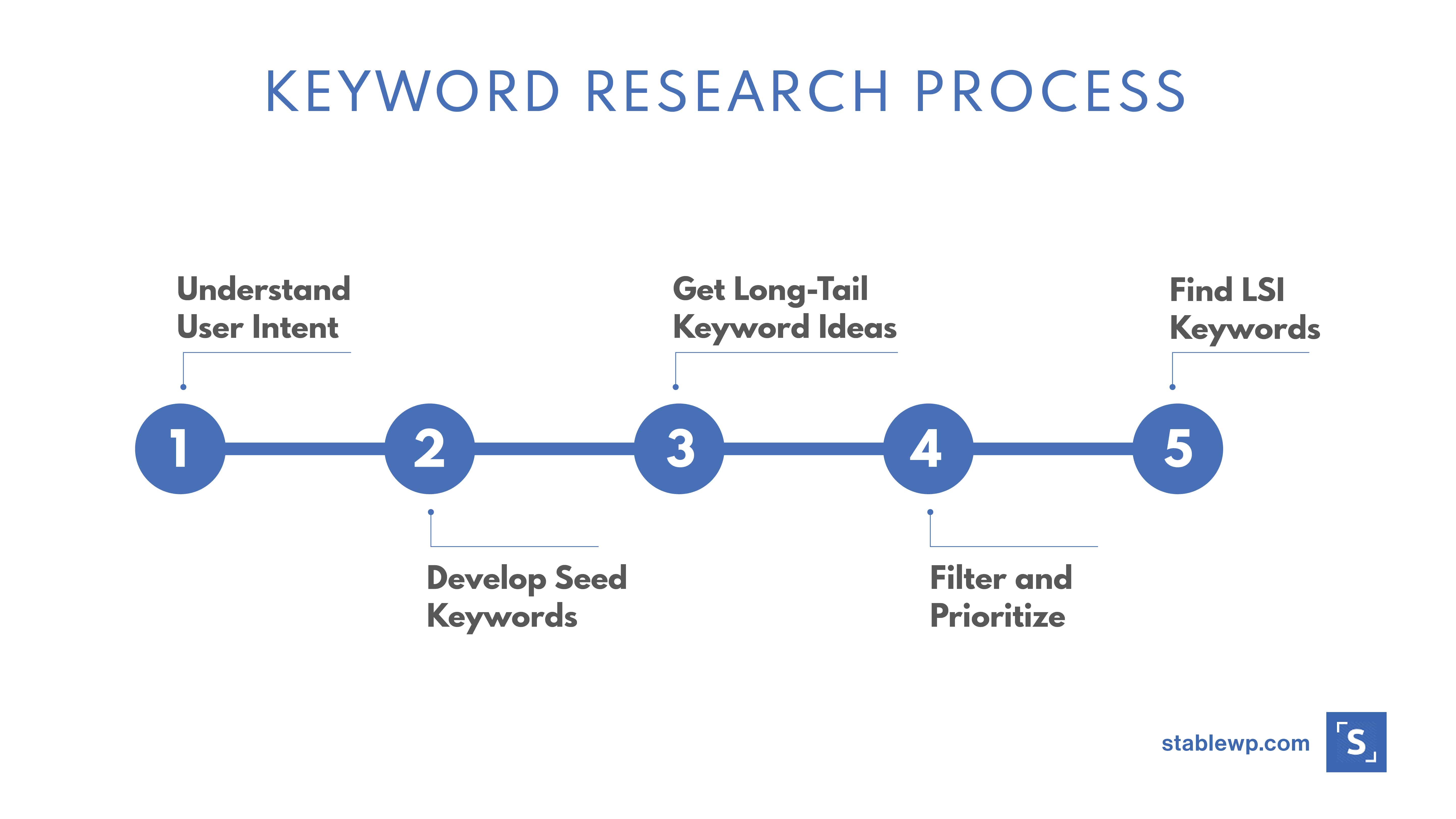Buzz Haven: Your Daily Dose of News
Stay informed and entertained with the latest buzz in news, trends, and insights.
Keyword Research: Finding Gold in a Sea of Search Terms
Uncover hidden gems in keyword research! Discover how to transform search terms into gold for your blog and boost your traffic today.
Top 10 Tools for Effective Keyword Research
When it comes to boosting your website's visibility on search engines, effective keyword research is paramount. Here are the top 10 tools for effective keyword research that can enhance your SEO strategy:
- Google Keyword Planner - A go-to tool for many, it provides insights into search volume and forecasts.
- Ahrefs - Known for its comprehensive keyword explorer, it offers metrics like keyword difficulty and click potential.
- SEMrush - A popular platform that delivers in-depth keyword analytics along with competitive insights.
- Ubersuggest - A user-friendly tool for generating keyword ideas and content suggestions.
- KeywordTool.io - This tool pulls keyword suggestions from multiple platforms, including YouTube and Bing.
Continuing with our list of the top 10 tools for effective keyword research, we have:
- Answer The Public - A unique tool that visualizes search queries and common questions related to your keywords.
- KWFinder - Offers localized keyword suggestions, useful for targeting specific regions.
- Moz Keyword Explorer - Provides an easy-to-understand interface along with useful keyword difficulty scores.
- Serpstat - A multifaceted tool that not only aids keyword research but also offers site audit functionalities.
- Long Tail Pro - Perfect for finding profitable long-tail keywords that can drive niche traffic.

How to Analyze Keyword Competition Like a Pro
To analyze keyword competition effectively, start by identifying your target keywords. Use a tool like Google Keyword Planner or SEMrush to gather a list of potential keywords relevant to your niche. Once you have your keywords, the next step is to check their competition levels. You can do this by examining the Search Engine Results Pages (SERP) for each keyword. Look at the top-ranking pages: assess their domain authority, content quality, and backlink profiles. This analysis will give you a clear picture of how difficult it may be to rank for each keyword.
Another important aspect of keyword competition analysis is understanding the intent behind the keywords. Classifying them into categories such as informational, transactional, or navigational can help you tailor your content to meet user expectations. Utilize tools like Ahrefs or Moz to track the estimated traffic and keyword difficulty score. In this way, you can prioritize your efforts on low-competition keywords that align with your audience's needs, providing a more strategic approach to your SEO efforts.
What are Long-Tail Keywords and Why Should You Use Them?
Long-tail keywords are specific phrases that usually consist of three or more words. Unlike broad keywords, which can attract a high volume of searches but are often highly competitive, long-tail keywords are more targeted and less competitive. For instance, instead of using a generic keyword like 'shoes', a long-tail keyword would be 'best running shoes for flat feet'. This specificity helps in attracting a more qualified audience who are further along in the buying cycle and looking for exactly what you offer.
Using long-tail keywords can significantly enhance your SEO strategy. They not only improve search engine rankings by aligning more closely with user intent but also drive more relevant traffic to your website. In fact, research shows that long-tail keywords can account for up to 70% of all search traffic. Therefore, incorporating these phrases into your content, blog posts, and product descriptions can lead to higher conversion rates and a better return on investment for your digital marketing efforts.